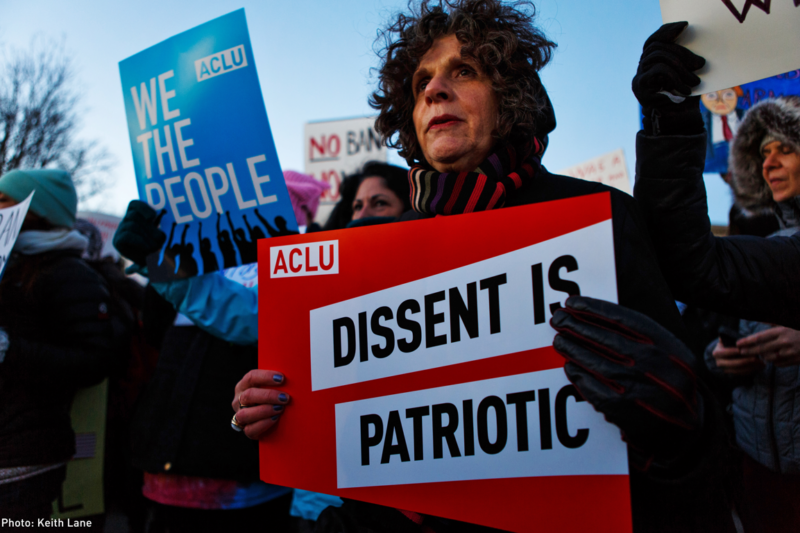
This piece originally appeared in the Summer 2017 issue of the .
On January 27, 2017, President Donald Trump signed an executive order banning the citizens of seven Muslim-majority countries from entering the United States. The broad language of the decree included those with valid visas, refugees who had been cleared for entry, and even green card holders. The ACLU was at the ready with legal arguments against such a move and, together with its allies, immediately mobilized a challenge. Meanwhile, thousands of Americans flocked to major airports across the country to protest the ban and to demand the release of hundreds of detained travelers.
One day after the ban went into effect, a federal judge granted the ACLU’s request for an emergency hearing, blocking the deportations and ordering customs officials to provide a list of individuals who had been detained as a result of the ban. It was the first successful challenge of a Trump executive order and the fulfillment of a promise the ACLU made two days after Trump was elected: “We’ll see you in court.”
As expected, during his first month in office, Trump wasted no time implementing an unconstitutional agenda to undo many of the civil liberties gains of the past quarter century—from immigrants’ rights to reproductive freedom to LGBT rights. His actions validated an unprecedented outpouring of support following his election for the ACLU and its nonpartisan mission to defend civil liberties and uphold the US Constitution and the Bill of Rights in every town, city, and state in America. Since Trump was elected, our membership has quadrupled to 1.6 million, and our activist alert e-mail list is 2.2 million and growing. Trump’s travel ban alone provoked a record fundraising haul of $24 million from 356,000 online donations.
To continue reading this piece at the Stanford Social Innovation Review, click .

